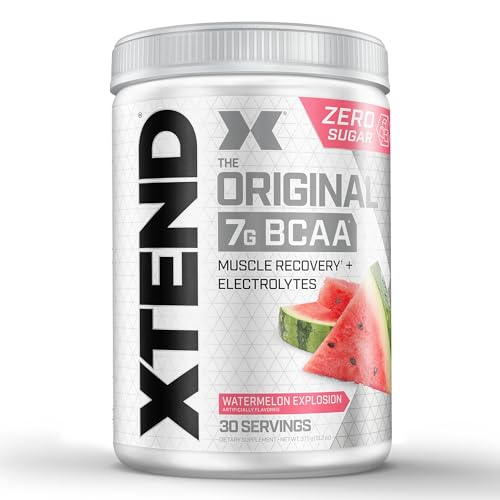Healthy Food Supplements for Athletic Performance and Recovery
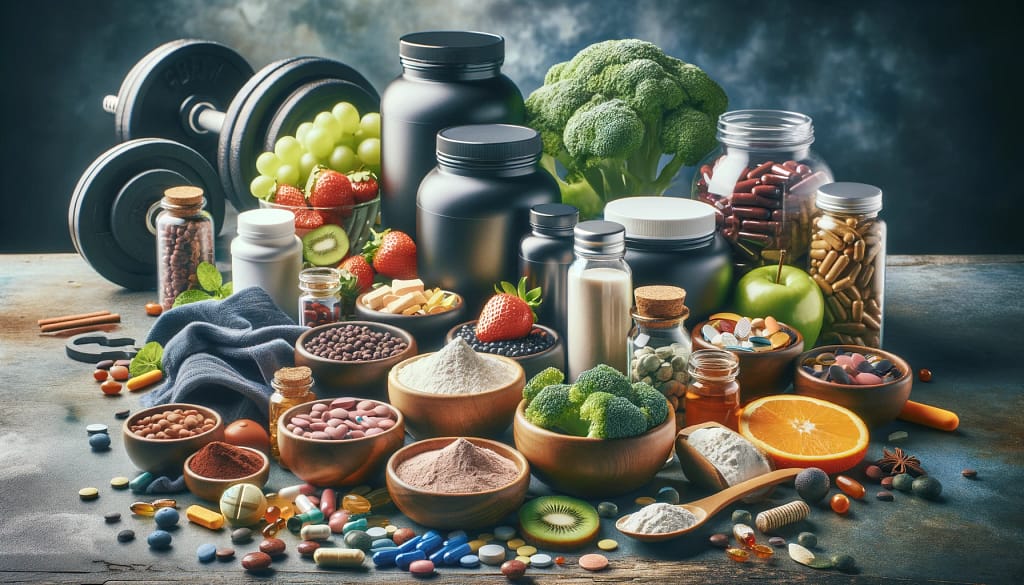
Table of Contents
Introduction
If you’re on the hunt for ways to boost your athletic prowess or expedite post-workout recovery, look no further—Healthy Food Supplements might just be your golden ticket. This all-encompassing guide is your one-stop resource for understanding how supplements can serve as powerful tools for achieving your fitness goals. Whether you’re a taekwondo master, a fitness buff, or someone committed to an active lifestyle, Healthy Food Supplements can offer a valuable edge.
Given our busy lives, it can be a monumental task to get all the nutrients we need solely from food, especially when striving for athletic excellence. That’s why we’re zooming in on the wide-ranging world of Healthy Food Supplements, discussing everything from their advantages to safety precautions. We aim to arm you with the knowledge needed to select the ideal supplement to meet your unique fitness objectives.
What Are Healthy Food Supplements?
Types of Healthy Food Supplements
Here are some common types of healthy food supplements:
-
- Vitamins and Minerals: These are essential nutrients required for various bodily functions such as metabolism, immunity, and cellular repair.
-
-
- Protein Powders: These are concentrated forms of protein, commonly whey, casein, or plant-based options like pea or rice protein.
-
- Amino Acids: These are the building blocks of proteins and may come in isolated forms, such as BCAAs (Branched-Chain Amino Acids).
-
- Herbal Extracts: These include compounds extracted from plants, often for their potential health benefits.
-
- Energy Boosters: Products like caffeine or guarana are designed to increase alertness and energy levels.
Who Can Benefit?
When to Use Healthy Food Supplements?
Caution
Why Athletes Need Supplements
Nutritional Gaps
Enhanced Recovery
Recovery is just as important as the workout itself. Protein shakes, amino acids and other supplements can significantly improve muscle recovery, allowing athletes to train harder and more frequently without fatigue or injury.
Energy Boost
Improved Performance
Supplements can offer a competitive edge by enhancing physical performance. Creatine, for example, can improve high-intensity workout performance by as much as 15%.
Convenient Nutrition
Let’s face it; athletes are busy people. Meal prepping and eating can be time-consuming. Supplements offer a quick and convenient way to intake high-quality nutrients on the go.
Supplement Safety and Regulations
When it comes to selecting healthy food supplements, safety and regulations are critical factors that shouldn’t be overlooked. The supplement industry is vast, and while many products promise enhanced performance or quicker recovery, not all of them are created equally in terms of safety and quality.
Regulatory Bodies
In the United States, for example, the Food and Drug Administration (FDA) is responsible for overseeing supplement safety but does not approve dietary supplements before they hit the market. This means consumers must perform their due diligence.
Ingredient Transparency
For assurance of quality and safety, opt for supplements that have undergone third-party testing. Companies often display certificates or seals that indicate their products are compliant with safety norms.
Third-Party Testing
Lorem ipsum dolor sit amet, consectetur adipiscing elit. Ut elit tellus, luctus nec ullamcorper mattis, pulvinar dapibus leo.
Potential Side Effects
No supplement is without potential side effects, particularly when taken in excessive amounts. Ensure you read the guidelines and recommendations on the packaging, and consult a healthcare provider for personalized advice.
Interactions with Medications
If you are currently on medication, some supplements may interact negatively with your prescriptions. Always consult with a healthcare professional before starting any new supplement regimen.
Final Thoughts
Given the lax regulations around healthy food supplements, consumers need to be cautious and proactive in choosing products that are both effective and safe. Always research thoroughly, read reviews, and perhaps most importantly, consult healthcare professionals for tailored advice.
By taking these precautions, you can benefit from healthy food supplements while minimizing risks.
Protein Supplements
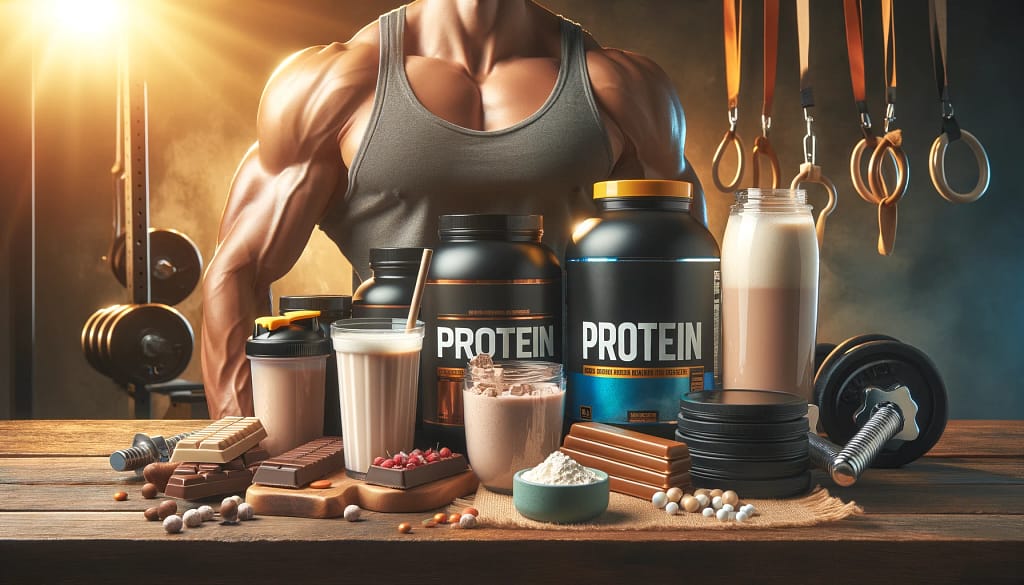
What Are Protein Supplements?
Protein supplements are one of the most popular types of healthy food supplements among athletes and fitness enthusiasts. These supplements are usually derived from whey, casein, or plant-based sources like pea, hemp, or rice. Protein is essential for muscle repair, growth, and overall athletic performance.
Why Protein Is Important
Protein is a vital macronutrient that plays a key role in various bodily functions, including the repair of cells, muscle growth, and the production of enzymes and hormones. For athletes, protein is particularly crucial for muscle recovery and growth.
Protein Supplement Forms
There are various forms of protein supplements available, such as protein powders, shakes, bars, and even ready-to-drink beverages. Each form has its own set of pros and cons, so it’s essential to choose one that fits your lifestyle and needs.
Types of Protein in Supplements
-
- Whey Protein: Quick to digest and rich in essential amino acids. Ideal for post-workout recovery.
-
- Casein Protein: Slow-digesting, providing a steady release of amino acids. Good for nighttime use.
-
- Plant-Based Protein: Derived from peas, rice, or hemp. Suitable for vegetarians and vegans.
Recommended Protein Intake
The recommended daily protein intake varies depending on your age, sex, and level of physical activity. Generally, athletes should aim for 1.2 to 2.0 grams of protein per kilogram of body weight.
Brands to Consider
Several reputable brands are offering high-quality protein supplements. Some popular ones include Optimum Nutrition, Myprotein, and Vega for plant-based options.
Final Thoughts
Protein supplements are a type of healthy food supplement that can greatly benefit athletes and those involved in regular physical activity. Before making a purchase, always consult with a healthcare provider, especially if you have any underlying health conditions.
Amino Acids
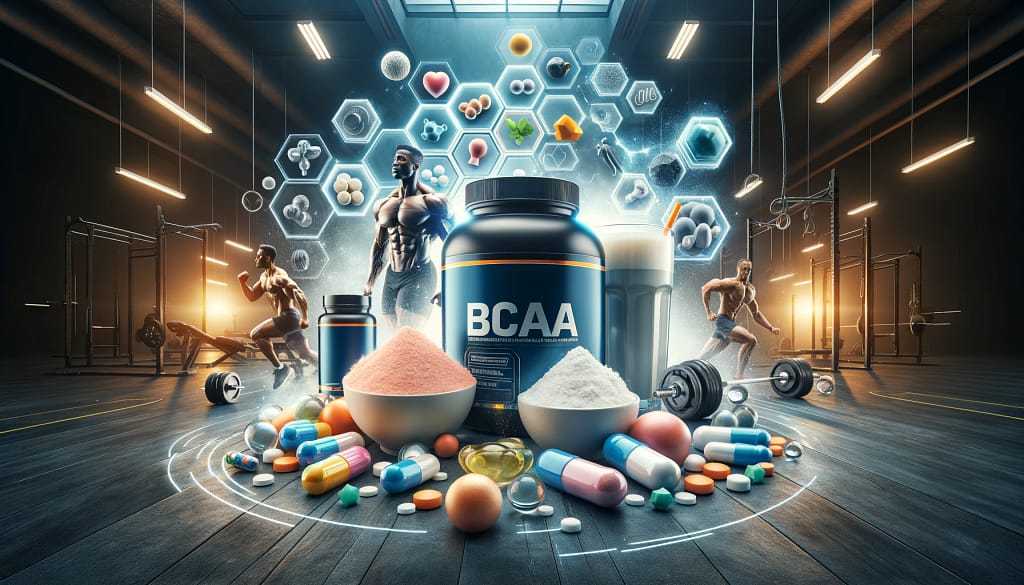
Amino acids are often termed the ‘building blocks of life,’ for a good reason. They are crucial components of proteins and have various metabolic roles. For athletes and fitness enthusiasts, amino acids, particularly branched-chain amino acids (BCAAs), are essential for muscle growth, energy production, and recovery.
Importance of Amino Acids in Athletic Performance
Understanding the role of amino acids is pivotal for anyone looking to get the most out of their workouts. When it comes to enhancing athletic performance, amino acids play a crucial part in several physiological processes, including muscle synthesis, hormone production, and neurotransmitter balance.
Types of Amino Acids
Amino acids can be classified into essential, non-essential, and conditional amino acids. The body cannot produce essential amino acids which must be obtained through diet or healthy food supplements. Non-essential and conditional amino acids can be produced by the body but are often included in supplements for an extra boost.
Amino Acids in Healthy Food Supplements
When shopping for healthy food supplements, you’ll often find amino acids listed as a primary ingredient, especially in products designed for athletes or those leading an active lifestyle. BCAAs like leucine, isoleucine, and valine are most commonly found in these supplements.
How to Choose Amino Acid Supplements
When choosing amino acid supplements, consider factors like the form of the supplement (powder, tablet, etc.), the types of amino acids, purity, and any additional ingredients like sweeteners or flavours. Always consult a healthcare provider before beginning any new supplement regimen.
Risks and Precautions
Although amino acids are generally considered safe, they can interact with certain medications or conditions. Overuse can also lead to imbalances in the body. As with any healthy food supplement, moderation is key, and it’s advisable to consult a healthcare provider for tailored advice.
By understanding the role and benefits of amino acids, you can make a more informed choice about incorporating them into your regimen of healthy food supplements. Whether you’re an athlete or someone looking to enhance your overall wellness, amino acids can be a beneficial addition to your dietary plan.
Creatine Supplements
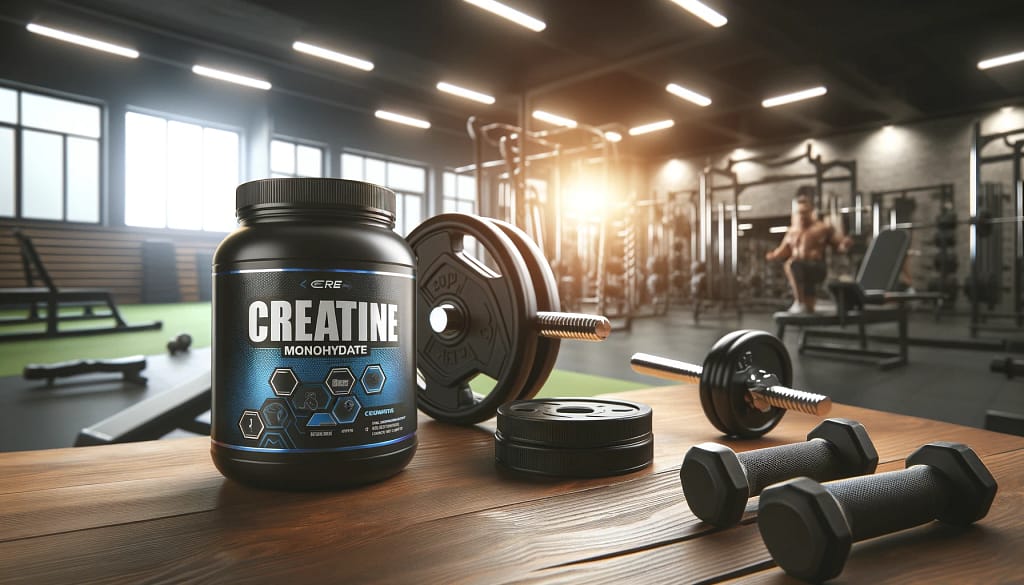
Creatine is one of the most researched and effective healthy food supplements available in the market today, especially for athletes and fitness enthusiasts. This organic compound is naturally found in muscle cells and helps your muscles produce energy during high-intensity, short-duration activities like lifting weights or sprinting.
What is Creatine?
Creatine is a molecule that your body produces naturally, and it’s also found in various foods like meat and fish. It’s stored primarily in your muscles and used for cellular energy production.
Why Choose Creatine?
Numerous studies have shown that creatine can improve strength, increase lean muscle mass, and help muscles recover more quickly during exercise. This translates into better performance, whether you’re involved in high-impact sports like Taekwondo or endurance activities like marathon running.
Types of Creatine Supplements
There are several types of creatine supplements available:
-
- Creatine Monohydrate: The most commonly used form, backed by the most research.
-
-
- Creatine Ethyl Ester: More easily absorbed but less effective.
-
- Buffered Creatine: Engineered to have a higher pH level for better stability.
How to Use Creatine Supplements
It’s essential to follow the manufacturer’s guidelines on how to use creatine supplements. A typical dosing strategy involves a “loading phase” followed by a “maintenance phase.”
Risks and Precautions
While generally considered safe, it’s crucial to consult a healthcare provider before starting any new supplement regimen. Some people may experience stomach cramping, nausea, or diarrhoea when they start taking creatine.
Best Brands for Creatine Supplements
When it comes to selecting a brand, look for products that have been third-party tested for purity and effectiveness.
Conclusion
Creatine supplements are a valuable addition to an athlete’s nutrition toolkit. Whether you aim to improve strength, increase stamina, or recover faster, creatine supplements have been proven to be both safe and effective.
Energy Boosters

When it comes to maintaining high energy levels during rigorous training sessions or competitions, healthy food supplements can be a game-changer. These supplements are often sought after by athletes and fitness enthusiasts to enhance their performance and stamina. Here, we’ll explore some of the best options in energy boosters, so you know what to look for when shopping for healthy food supplements.
Caffeine
One of the most commonly used energy boosters is caffeine. Available in various forms like pills, powders, or even naturally in coffee and tea, caffeine stimulates the central nervous system to make you feel more awake and alert.
Beta-Alanine
Beta-alanine is another popular supplement that can increase muscle endurance, allowing athletes to train harder and for longer periods. Usually, it’s taken in a pre-workout blend.
Taurine
Often found in energy drinks, Taurine is known for improving athletic performance. Though it’s most effective when combined with caffeine, it can also be taken on its own.
Guarana Extract
Originating from Brazil, this plant extract is another form of caffeine. It’s said to release more slowly into the bloodstream, providing a sustained energy boost.
B-Vitamins
B vitamins are crucial for converting food into energy. B12, in particular, is often recommended for athletes and can be found in various forms such as injections, tablets, or natural food sources.
MCT Oil
Medium-chain triglycerides (MCT) Oil is a type of fat that the body can rapidly convert to energy. It’s popular among keto dieters but can be beneficial for athletes as well.
Risks and Side Effects
While energy boosters can be effective, they aren’t free from risks. Overuse can lead to jitters, insomnia, or more severe health issues. Always consult with a healthcare provider before incorporating new supplements into your regimen.
Recommendations
When choosing healthy food supplements for energy, opt for products from reputable brands that adhere to good manufacturing practices. Always read labels and reviews to understand the pros and cons of each product.
Recovery Aids

Recovery is an integral part of any athletic routine, and it’s an area where healthy food supplements can play a crucial role. When it comes to Taekwondo or any form of martial arts, intense training sessions can leave muscles sore and the body fatigued. Proper recovery is essential not only for muscle growth but also for enhancing overall athletic performance.
When to Add Images: A visual representation can be added here to highlight some common recovery aids such as BCAAs, Omega-3 capsules, or even a balanced meal with a supplement on the side.
Types of Recovery Aids
There are various types of recovery aids you can consider:
-
- BCAAs (Branched-Chain Amino Acids): Helps in muscle recovery and reduces muscle soreness.
-
-
- Glutamine: Accelerates recovery and muscle growth.
-
- Omega-3 Fatty Acids: Reduces inflammation and improves heart health.
-
- Zinc and Magnesium: Known for speeding up recovery and improving the quality of sleep.
Benefits of Using Recovery Aids
Utilizing healthy food supplements as recovery aids offers several benefits:
-
- Faster Muscle Recovery: Speeds up the natural process of muscle repair.
-
-
- Reduced Inflammation: Helps manage and reduce post-workout inflammation.
-
- Better Sleep: Some supplements can improve sleep quality, a critical aspect of recovery.
Dosage and Timing
It’s crucial to follow proper dosage and timing for maximum effectiveness. Consult with a healthcare provider or certified nutritionist for personalized advice.
By incorporating these healthy food supplements into your regimen, you can optimize your recovery process and be better prepared for your next training session.
Adaptogens

Adaptogens are a unique class of herbal substances used traditionally in various cultures to help the body adapt to stress, restore balance, and protect against a wide variety of physiological challenges. In the context of athletic performance and recovery, adaptogens have gained popularity as natural remedies to enhance stamina, reduce fatigue, and improve focus.
What Are Adaptogens and How Do They Work?
Adaptogens work by modulating the release of stress hormones from the adrenal glands. They support the body’s natural ability to deal with stress, be it physical, emotional, or environmental.
Common Types of Adaptogens
Some commonly used adaptogens that you might come across include:
-
- Ashwagandha
-
-
- Rhodiola Rosea
-
- Siberian Ginseng
-
- Holy Basil (Tulsi)
-
- Cordyceps
Benefits for Athletes
For athletes and fitness enthusiasts, adaptogens offer several benefits:
-
- Increased energy levels and endurance
-
-
- Enhanced recovery post-workout
-
- Reduced muscle fatigue
-
- Mental clarity and focus
-
- Immunity support
How to Choose the Right Adaptogen Supplement
When looking for adaptogen supplements, it’s crucial to consider the following:
-
- Source: Opt for organic, sustainably sourced products.
-
-
- Form: These can come in various forms like capsules, powders, or tinctures.
-
- Reviews: Look for products with high ratings and positive reviews to ensure efficacy.
Risks and Side Effects
While adaptogens are generally safe for most people, they can interact with medications or exacerbate certain health conditions. Always consult with a healthcare provider before adding new supplements to your regimen.
Conclusion
Adaptogens can be a valuable addition to your supplement routine, offering a range of benefits from increased energy to better mental focus. However, make sure to choose wisely and consult with a healthcare provider to find the best adaptogen that suits your specific needs and conditions.
Micronutrients
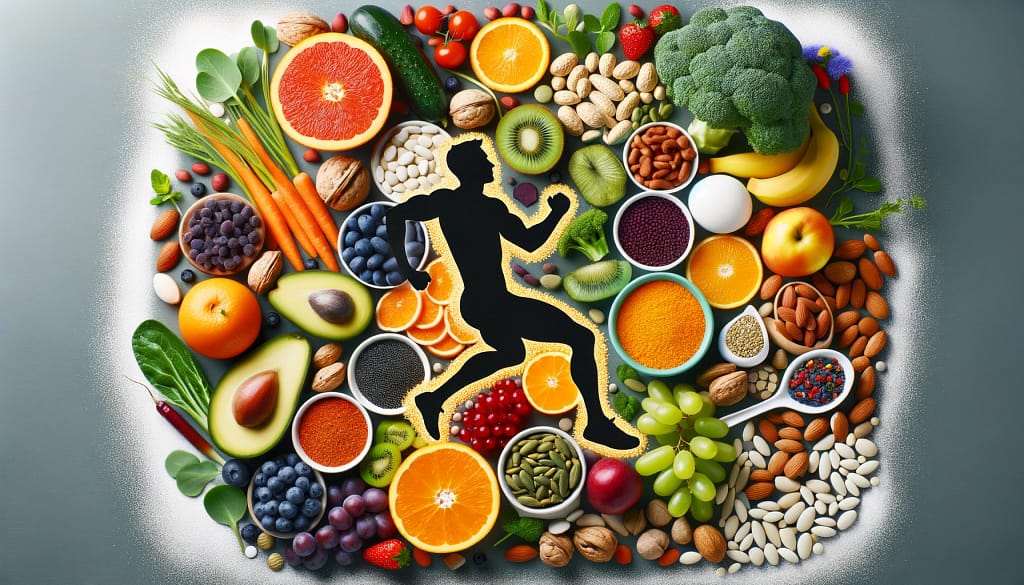
While the importance of macronutrients like protein and carbs in athletic performance is well-established, the role of micronutrients should not be overlooked. Micronutrients include essential vitamins and minerals that your body needs in smaller amounts but are crucial for optimal health and performance.
The Importance of Micronutrients
Micronutrients play a vital role in a variety of physiological functions that are especially relevant for athletes. From aiding in the repair and growth of muscle tissue to enhancing immune function, the benefits are manifold.
Commonly Used Micronutrients in Healthy Food Supplements
Micronutrients for Recovery
After an intense workout or Taekwondo session, micronutrients can aid in the recovery process. Antioxidants like vitamins C and E can help mitigate oxidative stress induced by exercise.
Deficiency Risks
Athletes who restrict their caloric intake or lack variety in their diets may be at risk for micronutrient deficiencies. This is where healthy food supplements can be particularly beneficial.
Dosage and Timing
When it comes to micronutrients, more is not always better. Excessive intake can lead to toxicity. It’s essential to follow the recommended dosages, which can often be found on the packaging of healthy food supplements.
Where to Buy
There are numerous online and physical stores where you can purchase micronutrient supplements. Make sure to buy from reputable sources to ensure you’re getting quality products.
Vegan and Vegetarian Options

When it comes to healthy food supplements, vegan and vegetarian athletes often face unique challenges. Standard supplements like whey protein or certain types of creatine may contain animal-derived ingredients, making them unsuitable for those following a plant-based diet. Thankfully, the supplement industry has evolved to offer an array of vegan and vegetarian options that are just as effective for enhancing athletic performance and recovery.
Plant-Based Proteins
One of the most popular categories in healthy food supplements for vegans is plant-based proteins. Options include pea protein, rice protein, and hemp protein. These are excellent alternatives to animal-based proteins and are rich in essential amino acids necessary for muscle repair and growth.
Vegan BCAAs
Branched-chain amino Acids (BCAAs) are critical for muscle development and repair. Many BCAA supplements on the market are derived from animal sources. However, vegan BCAAs, sourced from plants, provide the same benefits without compromising your dietary preferences.
Vegan Creatine
Creatine supplements often come from animal sources, but plant-based creatine is now widely available. Vegan creatine is synthesized in labs and is just as effective in improving athletic performance and muscle recovery.
Vegan Multivitamins
Vegan and vegetarian athletes must cover any nutritional gaps in their diets. Vegan multivitamins often include essential nutrients like Vitamin B12, iron, and omega-3s, which may be harder to obtain from plant-based foods alone.
Algal Oils
Omega-3 supplements are usually derived from fish oils, but algal oils offer a plant-based alternative rich in DHA and EPA. Algal oils are an excellent addition to the list of healthy food supplements for vegan and vegetarian athletes.
By choosing vegan and vegetarian options in healthy food supplements, you can achieve your fitness goals while adhering to your ethical or dietary standards. Remember to always consult with a healthcare provider before adding any new supplements to your regimen.
Price Comparison

When it comes to Healthy Food Supplements, the price can often indicate the quality and effectiveness of the product. However, this is not a hard-and-fast rule. Different supplements come with varying price tags depending on the brand, ingredients used, and the production process. Here, we’ll compare the prices of various types of healthy food supplements to give you an idea of what fits within your budget.
Over-the-Counter vs. Premium Brands
-
- Over-the-counter: These are readily available at most drugstores and tend to be more affordable. They usually range from $10-$30 per bottle or packet.
-
- Premium Brands: These often contain specialized or higher-quality ingredients and could cost upwards of $40-$100 per item.
Cost Per Serving
It’s crucial to consider the cost per serving when evaluating the price of supplements. Some might seem inexpensive at first glance but require a high dosage, making them more expensive in the long run.
Monthly Expense
Based on your daily or weekly serving, calculate the monthly expense for each supplement. Keep this in mind, especially if you plan to use the supplement long-term.
Bulk Purchase Discounts
Some brands offer discounts when you purchase in bulk or subscribe for monthly deliveries. This can significantly reduce the overall cost.
Coupons and Sales
Keep an eye out for seasonal sales, coupons, or special promotions from the brand or retailer. These opportunities can bring down the costs considerably.
By carefully comparing the prices of Healthy Food Supplements, you can make an informed decision that aligns with both your fitness goals and your financial situation.
Customer Reviews and Testimonials

When it comes to choosing healthy food supplements, one of the most credible sources of information is the experiences of other consumers. Reviews and testimonials can provide insights into a product’s effectiveness, taste, and even the company’s customer service. In this section, we’ll dive into what people are saying about the top healthy food supplements on the market.
Why Reviews Matter
Customer reviews are invaluable because they offer unbiased insights into how well a supplement performs. Whether you’re looking for a protein powder that doesn’t clump, an amino acid supplement that doesn’t taste terrible, or a creatine product that delivers on its promises, reviews can be your best friend.
Reliable Sources for Reviews
While the product website will typically have glowing testimonials, it’s essential to look elsewhere for unbiased reviews. Trusted fitness blogs, social media influencers in the nutrition space, and e-commerce websites are good places to look.
What to Look For
When reading reviews, pay close attention to:
-
- Overall satisfaction
-
-
- Product Effectiveness
-
- Side effects
-
- Taste and mixability (for powders)
-
- Convenience (for capsule forms)
Cautions About Reviews
Remember that individual results can vary. What works wonderfully for one person might not be as effective for another due to different body types, diets, and workout regimens. Always consult a healthcare provider before starting any new supplement.
By paying close attention to customer reviews and testimonials, you’ll be better equipped to make an informed decision about which healthy food supplements to integrate into your lifestyle.

Conclusion
When it comes to achieving optimal performance in Taekwondo, martial arts, or any fitness endeavour healthy food supplements can make a significant difference. From boosting energy levels to aiding in recovery, the right supplements can offer a host of benefits that can’t be ignored. However, the keyword here is “healthy.” Ensuring that the supplements you choose are not just effective but also safe and appropriate for your specific needs is essential.
As we’ve seen, there are various types of supplements to consider, each with its unique properties and benefits. Whether you’re looking to build muscle, improve endurance, or speed up recovery, there is likely a supplement that aligns with your goals. Cost and quality also come into play, making it crucial to do your homework before committing to a particular brand or product.
It’s advisable to consult with healthcare providers or certified nutritionists, especially if you have pre-existing medical conditions or take other medications. Combining the right supplements with a balanced diet and a well-thought-out training program can pave the way for improved performance and general well-being.
In this highly competitive market, remember that not all supplements are created equal. Therefore, it’s crucial to choose products that are backed by scientific evidence, positive customer reviews, and are aligned with your dietary restrictions, be it vegan, vegetarian, or other.
Remember, healthy food supplements can be a great addition to your lifestyle but should never replace a balanced diet and regular exercise.
Stay tuned for more informative content, and if you have any questions or personal experiences to share, feel free to comment below.
Additional Resources

When it comes to choosing healthy food supplements, the wealth of information available can sometimes be overwhelming. To help you make informed decisions, we’ve curated a list of additional resources that can offer more depth on topics we’ve covered.
Websites for Supplement Research
- National Institutes of Health (NIH) – Office of Dietary Supplements (ODS)
- Website: ods.od.nih.gov
- Description: Provides fact sheets on various supplements, with information on background, evidence on efficacy, and safety considerations.
- Examine.com
- Website: www.examine.com
- Description: An independent and unbiased database that investigates the science behind nutrition and supplementation.
- ConsumerLab.com
- Website: www.consumerlab.com
- Description: Tests health and nutritional products and provides ratings and reviews.
- PubMed Dietary Supplement Subset
- Website: pubmed.ncbi.nlm.nih.gov
- Description: A specialized search of the PubMed database focused on the topic of dietary supplements.
- Natural Medicines Database
- Website: naturalmedicines.therapeuticresearch.com
- Description: Comprehensive source for information on natural medicines and dietary supplements. Note: This is a subscription-based service.
- WebMD – Vitamins & Supplements
- Website: www.webmd.com/vitamins-and-supplements
- Description: Offers articles, tools, and a supplement database to learn about different supplements.
- The Mayo Clinic – Drugs and Supplements
- Website: www.mayoclinic.org/drugs-supplements
- Description: Provides information and patient care insights for many drugs and dietary supplements.
- Labdoor
- Website: www.labdoor.com
- Description: Analyzes and grades various supplements for label accuracy, product purity, nutritional value, ingredient safety, and projected efficacy.
- World Anti-Doping Agency (WADA)
- Website: www.wada-ama.org
- Description: Useful if you’re also addressing athletes, as WADA provides a list of prohibited substances.
- Food and Drug Administration (FDA) – Dietary Supplements
- Website: www.fda.gov/food/dietary-supplements
- Description: Offers guidance and regulation details related to the manufacturing, packaging, and holding of dietary supplements.
Books and eBooks

Books and eBooks are valuable resources that offer in-depth analyses and discussions on dietary supplements. Here are some recommendations:
“The Complete Guide to Sports Nutrition” by Anita Bean
The Complete Guide to Sports Nutrition (9th Edition) (Complete Guides)
Description: This comprehensive book provides insights into the importance of diet and nutrition for sports performance, including the role of supplements.
“Fortify Your Life: Your Guide to Vitamins, Minerals, and More” by Tieraona Low Dog, M.D.
Description: Dr. Low Dog offers advice on the essential nutrients our bodies need and how to get them, whether it’s through a healthy diet, supplements, or fortified foods
“The Real Vitamin and Mineral Book” by Shari Lieberman and Nancy Bruning
Description: Provides a detailed breakdown of a range of vitamins and minerals, discussing their benefits, potential risks, and recommended dosages.
“Supplements Exposed: The Truth They Don’t Want You to Know About Vitamins, Minerals, and Their Effects on Your Health” by Brian Clement
Description: This book takes a deeper dive into the supplement industry, examining the quality, efficacy, and safety of various products on the market.
“Natural Supplements for Diabetes: Reduce Your Risk and Lower Your Insulin Dependency with Natural Remedies” by Frank Murray
Description: Specifically targeted at diabetes, this book discusses how certain supplements might help in managing the disease.
“Vitamin K2 and the Calcium Paradox: How a Little-Known Vitamin Could Save Your Life” by Kate Rhéaume-Bleue
“Herbs and Nutrients for Neurologic Disorders” by Sidney Kurn, M.D., and Sheryl Shook, Ph.D.
Description: A guide to complementary therapies for common neurologic disorders such as Parkinson’s disease, Alzheimer’s disease, and migraines, detailing the use of herbs, vitamins, and other supplements.
“An Evidence-based Approach to Vitamins and Minerals: Health Benefits and Intake Recommendations” by Jane Higdon and Victoria Drake
Description: This book discusses the role of vitamins and minerals in human health and provides evidence-based recommendations for their intake
YouTube Channels
-
NutritionFacts.org
Provides scientific information on how various supplements affect human health. -
Jeff Nippard
Offers science-based training and nutrition advice, including supplement recommendations.
Apps for Tracking Nutrients
-
Cronometer
Allows you to track your nutrient intake and provides insights based on your goals. -
MyFitnessPal
In addition to macro tracking, it also lets you scan barcodes for nutritional information on various products, including healthy food supplements.
Online Forums and Blogs
-
Reddit’s r/Supplements
A community-driven space where you can ask questions and share your own experiences with supplements. -
Bodybuilding.com Forums
Provides extensive user-generated reviews and advice on various supplements.
Before diving into these resources, make sure to consult healthcare professionals, especially if you have pre-existing conditions or take medications. They can give you personalized advice on which healthy food supplements might best fit your needs.
FAQs

What Are Healthy Food Supplements?
Healthy food supplements are concentrated sources of nutrients, like vitamins, minerals, amino acids, and other substances, intended to supplement one’s diet and improve overall health. They can come in various forms such as pills, powders, or liquids.
Are Healthy Food Supplements Safe for Athletes?
Most healthy food supplements are safe for athletes when used according to manufacturer guidelines. However, it’s essential to consult with healthcare providers and possibly undergo tests to determine if a particular supplement is right for you.
Can I Replace Meals with Healthy Food Supplements?
No, healthy food supplements are not meant to replace a balanced diet but to supplement it. Always prioritize whole foods for your primary nutrient intake.
How Do I Choose the Best Healthy Food Supplements?
Choose products that are third-party tested, preferably by organizations like the NSF for Sport or Informed Choice. Additionally, always check for potential allergens and consult a healthcare provider if you’re taking other medications.
Do Healthy Food Supplements Have Side Effects?
While generally safe, some people may experience gastrointestinal issues, allergies, or other side effects. Always start with a lower dosage to test your body’s reaction.
When Is the Best Time to Take Healthy Food Supplements?
The timing varies depending on the type of supplement. For instance, protein shakes are often best-consumed post-workout, whereas some micronutrients are better absorbed when taken with a meal.
Can Vegans and Vegetarians Use Healthy Food Supplements?
Yes, there are plenty of vegan and vegetarian healthy food supplements available. Always check the ingredient list to ensure it aligns with your dietary requirements.
Are Healthy Food Supplements Only for Athletes?
No, healthy food supplements can benefit anyone, from busy professionals to the elderly, although the needs and recommended dosages might differ.

Conclusion
Navigating the world of healthy food supplements can seem overwhelming, especially with the myriad of options available. However, whether you’re an athlete aiming for peak performance or someone simply looking to fill nutritional gaps, supplements can offer targeted support. It’s crucial to do your research, consult healthcare providers, and opt for reputable products that align with your needs.
Remember, supplements are just that—a supplement to an already balanced diet and healthy lifestyle. They are not a shortcut or a replacement but can serve as a valuable asset on your health journey.
If you found this guide informative and useful, don’t hesitate to share it with others who may also benefit from learning about healthy food supplements. For more information on related topics, check out our other articles and product reviews.
Thank you for reading, and here’s to a healthier, more fulfilled you!
Disclaimer: This post may contain affiliate links. If you purchase through one of these links, I may earn a small commission at no extra cost to you. I only recommend products that I find valuable and trustworthy. Thank you for supporting the blog in this way!


